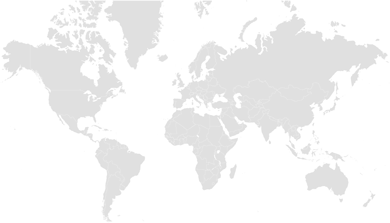Dataset
2018 • The River Basin Center, University of Georgia Building public confidence in constructed wetlands for wastewater treatment and reuse: Survey data and focus group transcripts
This dataset includes survey results and focus group transcripts exploring public perceptions and engagement strategies related to constructing experimental wetlands for wastewater treatment in Sewanee, Tennessee. The research aims to address public resistance to wastewater reuse by fostering informed community engagement and education. The dataset consists of survey data from community members and transcripts of discussions with K-12 teachers and community leaders. These provide valuable insights into public understanding, educational needs, and effective communication strategies for implementing constructed wetlands.
Recovered Materials & Products
Water reuse
Waste Streams
Wastewater
Greywater
Confirmed countries
Denmark


What is this tool intended for?
The dataset supports the design and implementation of effective public education and engagement strategies for introducing constructed wetlands as a sustainable wastewater treatment solution. It specifically targets overcoming barriers to public acceptance of treated wastewater reuse.
How does this tool work?
The dataset consists of both survey data and focus group transcripts, providing insights into public perceptions of wastewater treatment and reuse. The survey data includes quantitative responses from members of the Sewanee community regarding their knowledge, concerns, and preferred communication channels related to water and wastewater issues. The focus group transcripts capture qualitative insights from discussions with K-12 teachers and community leaders, highlighting strategies for effective community engagement and education. By analysing these responses, users can better understand public attitudes and develop targeted outreach efforts.
Who might use this tool and with which types of stakeholders?
This tool is intended for community planners, utility managers, educators, and researchers working to improve public understanding and acceptance of wastewater treatment solutions. It is also relevant for stakeholders such as local community members, educators, policymakers, and non-governmental organizations (NGOs) involved in water and sanitation projects.
What stages of a process can this tool support?
The dataset can be used during multiple stages of project planning and implementation. It is particularly useful in developing public engagement strategies, designing educational materials, and evaluating community knowledge and concerns about wastewater treatment and reuse. By applying the insights from the dataset, users can refine their approaches to communication and stakeholder engagement, ensuring that public concerns are addressed effectively.
What skills, capabilities, and resources are required to use this tool?
Users of this tool should have familiarity with survey analysis and qualitative data interpretation. The ability to design and implement public education campaigns is also beneficial for applying the insights gained from the dataset. Additionally, access to data processing tools, such as Microsoft Excel or text analysis software, will facilitate effective use of the survey and focus group findings.
Where can this tool be used?
The dataset is particularly applicable in rural, peri-urban, and small-town contexts where public resistance to wastewater reuse poses challenges to implementing sustainable water management solutions. It can be used by researchers and practitioners working in areas where community engagement is critical for the success of constructed wetlands and other wastewater treatment initiatives.
Get the Tool
The dataset is publicly available under a Creative Commons license, enabling free access and reuse with proper attribution.
Link to the River Basin Center https://rivercenter.uga.edu/
https://doi.org/10.5281/zenodo.1400567
Technologies
Constructed wetlands
Themes
Public awareness
Public acceptance
Stakeholder engagement